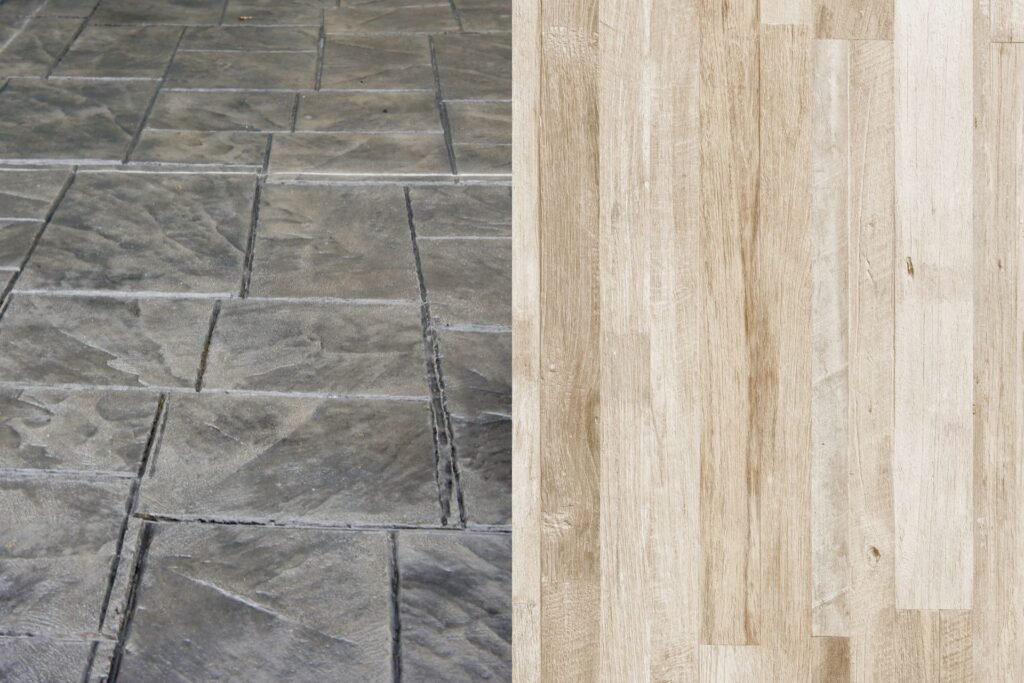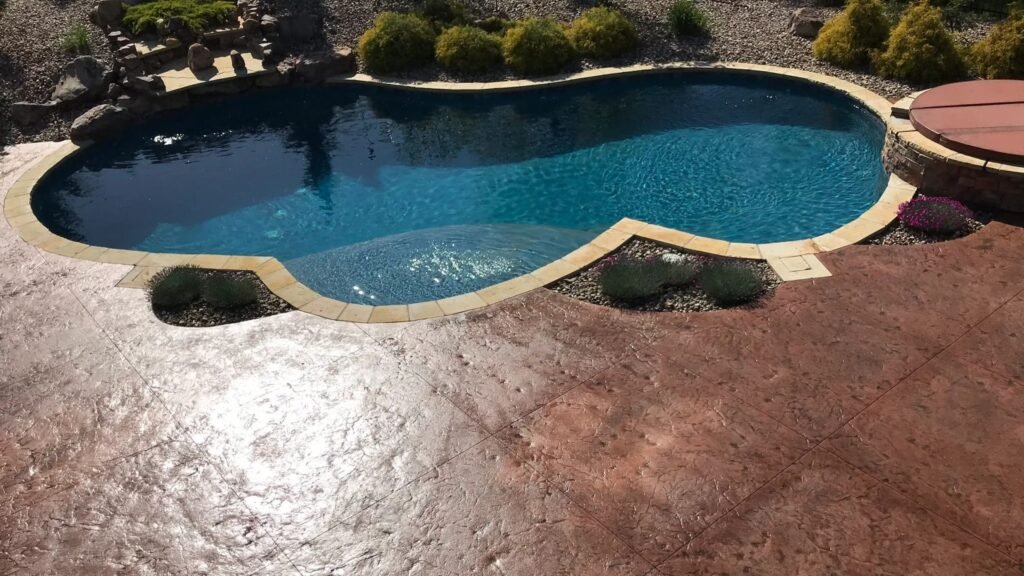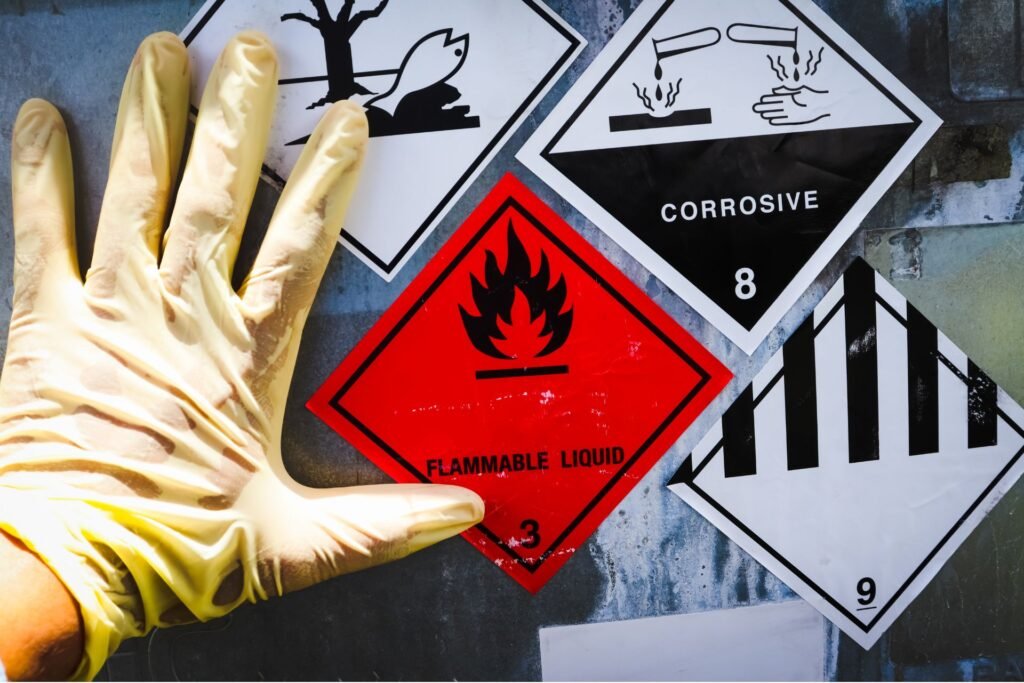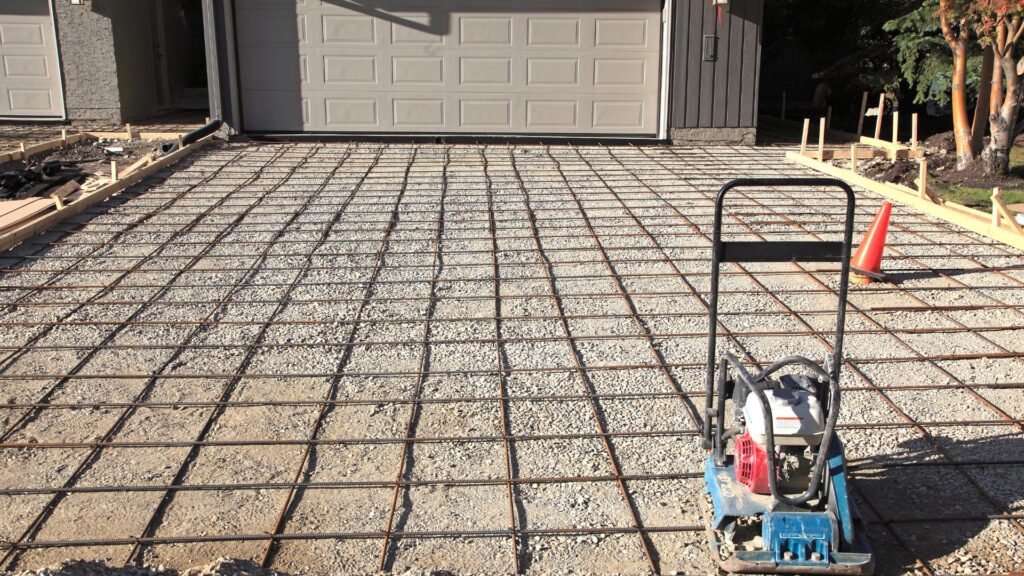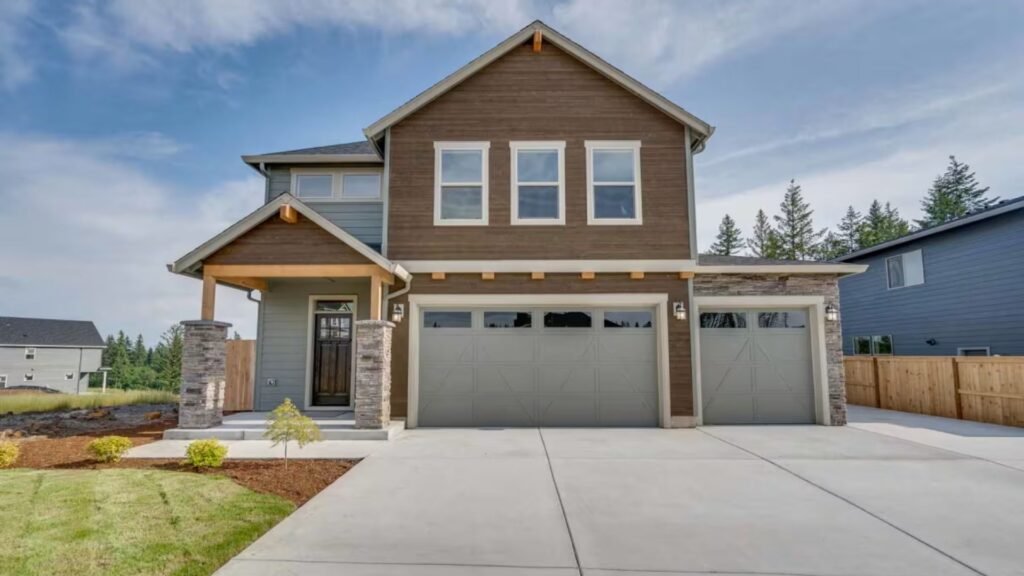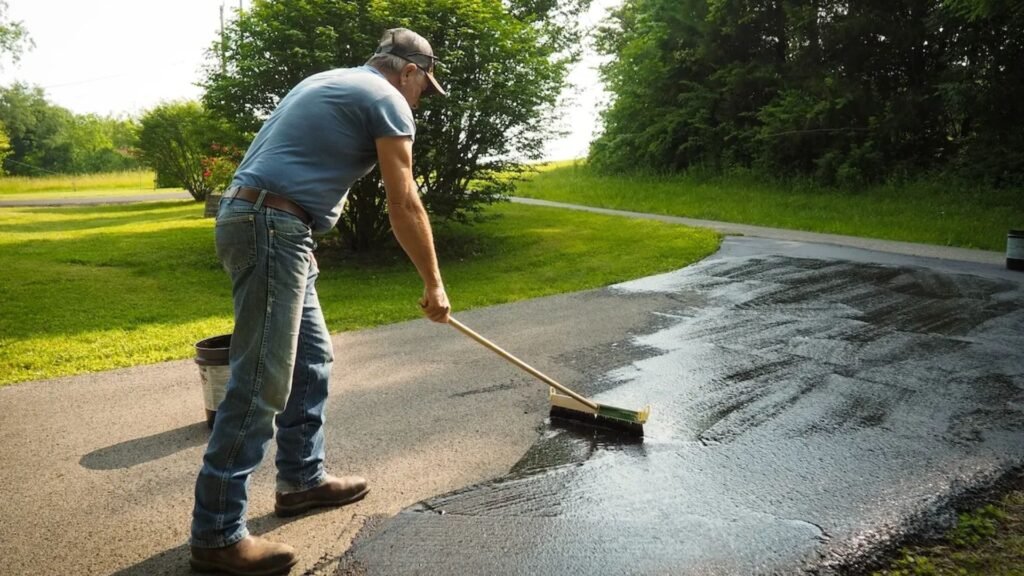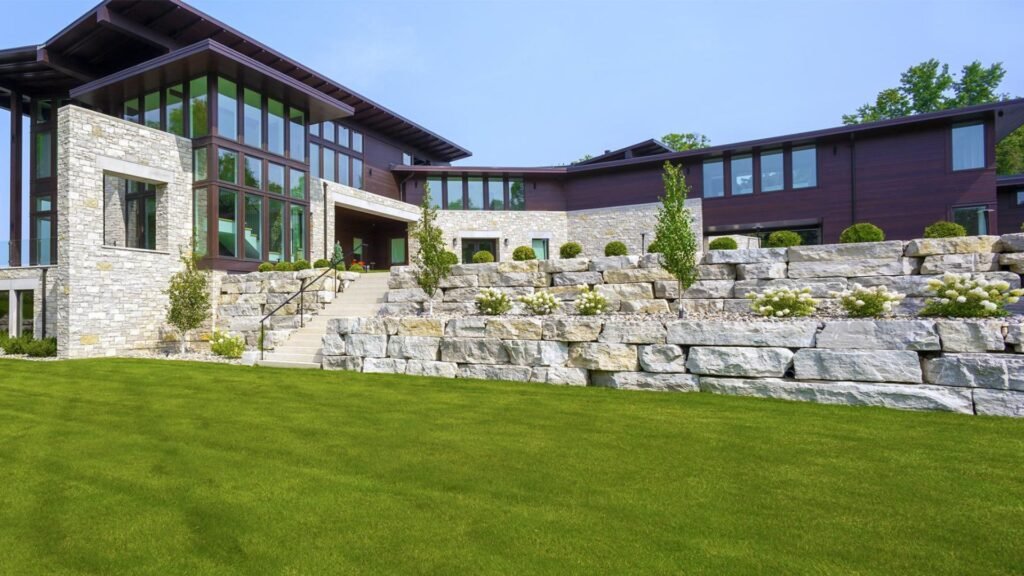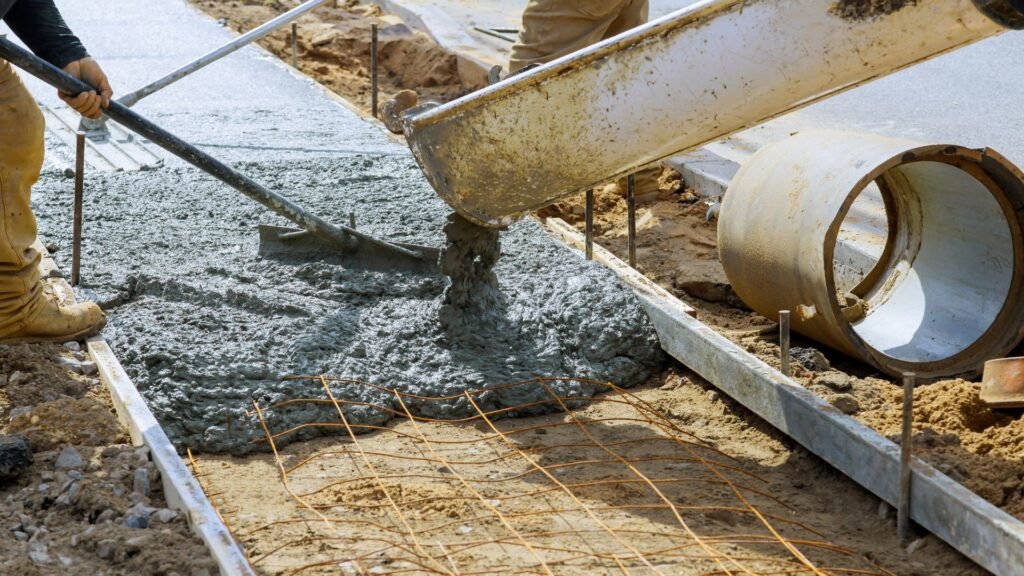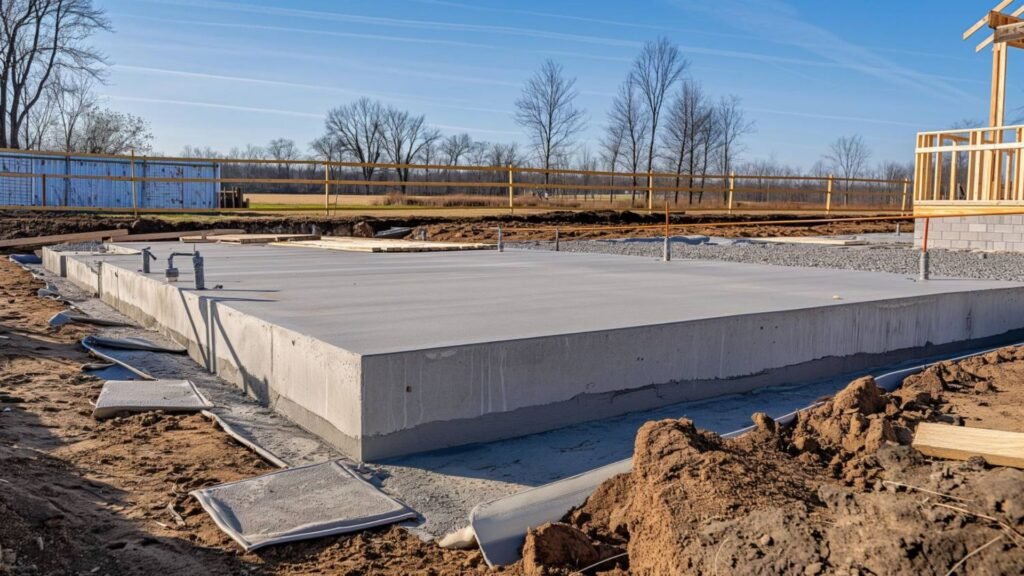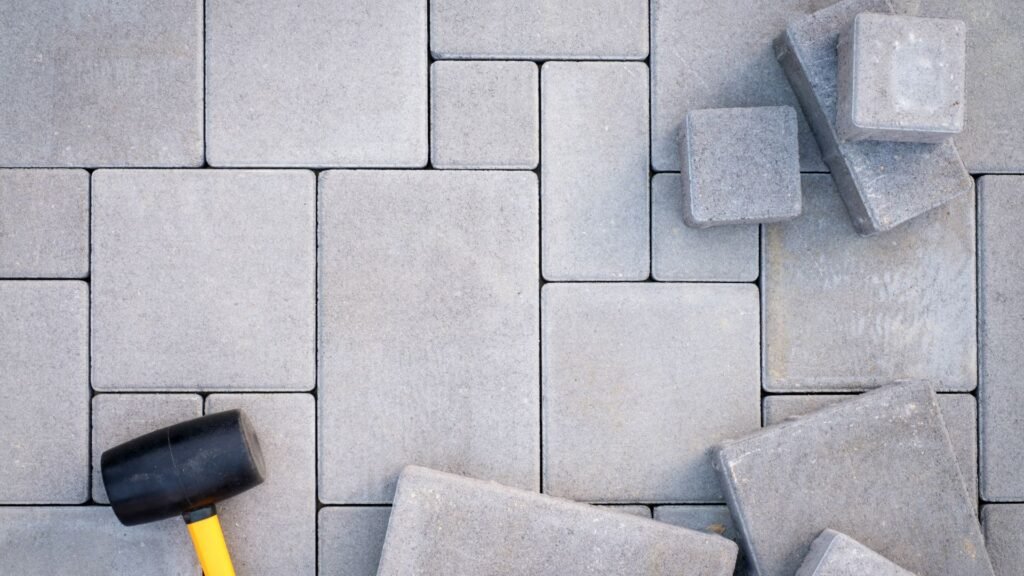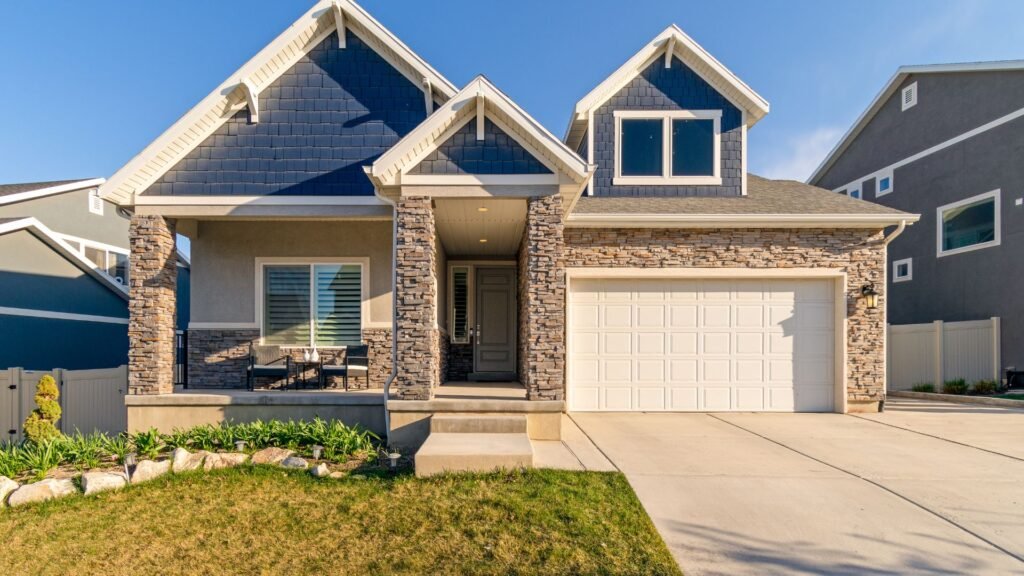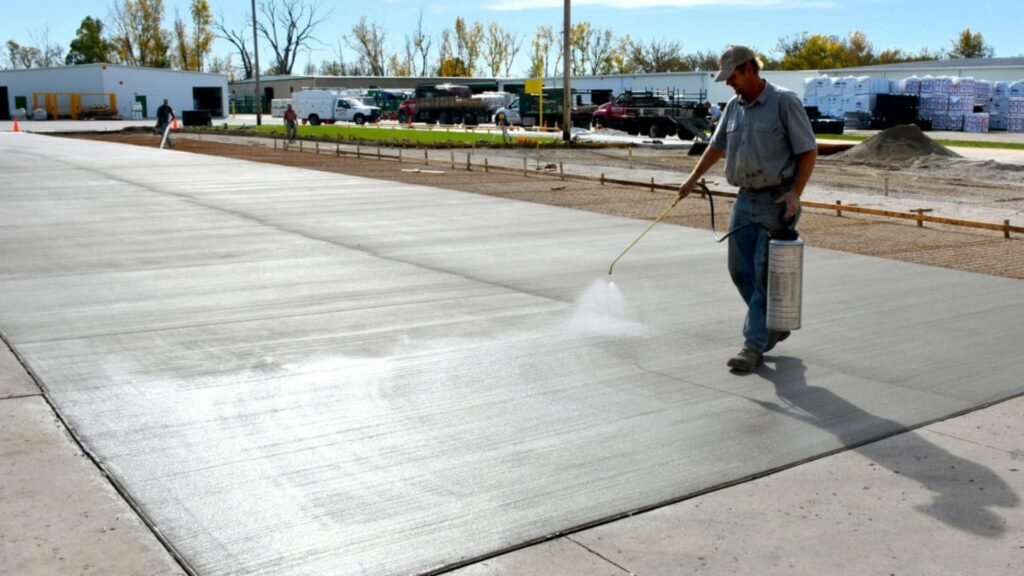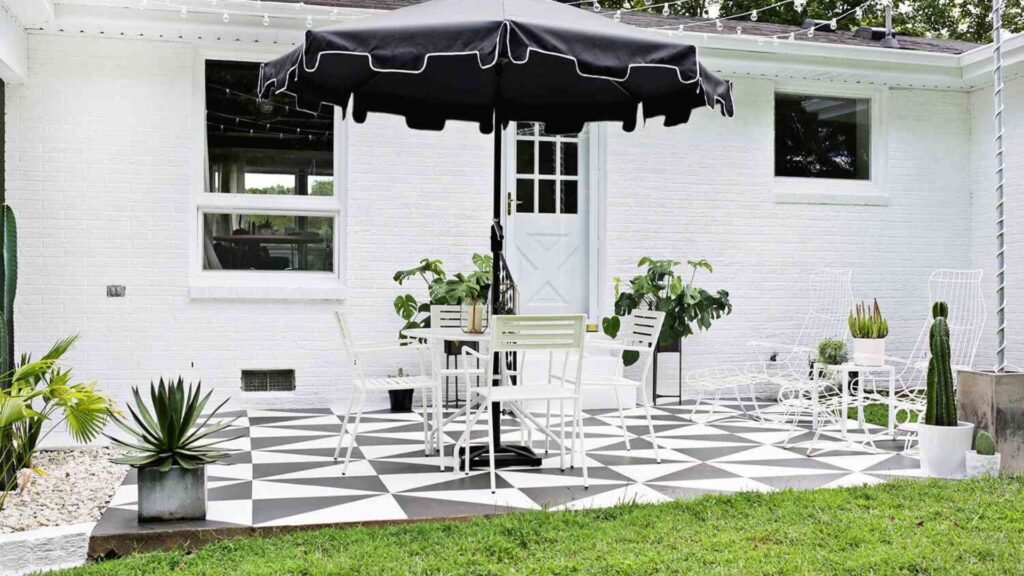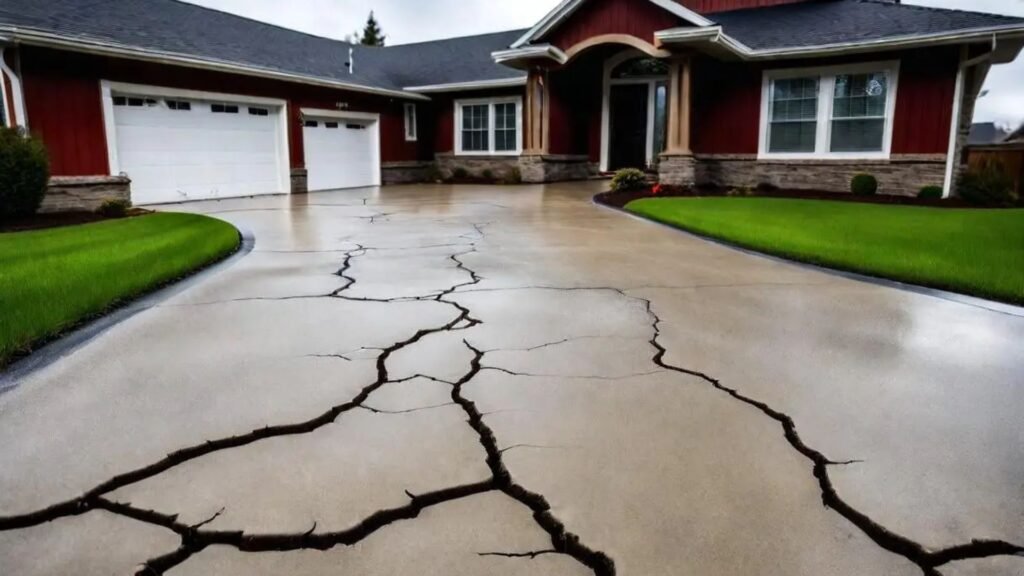Welcome to our comprehensive guide on understanding concrete prices per cubic meter (m3) in New Zealand. Whether you’re planning a small DIY project or a large-scale construction, knowing the cost of concrete is crucial for budgeting effectively and avoiding any unexpected expenses. In this guide, we’ll break down the factors that influence concrete prices, from the type of mix and additives to delivery fees and location, helping you make informed decisions. By the end, you’ll have a clear understanding of how to get the best value for your project, whether you’re ordering a small load or working on something more substantial.
The average cost of concrete per cubic meter (m3) in New Zealand ranges between $180 and $250, depending on factors such as location, the type of concrete mix, additives, and delivery distance. Prices may vary in urban areas like Auckland or Wellington, and additional costs, such as small load surcharges and pumping fees, can apply. For the best deal, it’s recommended to get quotes from multiple suppliers and consider ordering in bulk for potential discounts.
Table of Contents
What Is Concrete And Why Is It Important In Construction
Definition of Concrete
Concrete is one of the most widely used materials in construction, renowned for its strength, durability, and versatility. At its core, concrete is a composite material made from four main ingredients: cement, sand, gravel (or crushed stone), and water. These materials are mixed together, causing a chemical reaction called hydration, which hardens the mixture over time. Cement, which acts as the binder, holds the sand and gravel (also known as aggregate) together, while water activates the cement and makes the entire mix workable.
Once mixed, concrete can be poured into molds to take on various shapes and forms, making it a key material in a wide range of construction projects. It can also be customized with different additives to enhance its strength, workability, or appearance, depending on the requirements of the project.
Why Concrete is Essential in NZ Construction
In New Zealand, concrete is the go-to material for most construction projects, and for good reason. Its strength, durability, and ability to withstand environmental conditions make it an ideal choice for both residential and commercial builds. Let’s take a look at why concrete is so widely used in New Zealand.
- Strength and Durability: Concrete is known for its impressive structural integrity. When used in construction, it provides a stable foundation that can support heavy loads without compromising on safety. Buildings, bridges, and infrastructure that rely on concrete are built to last. In New Zealand, where safety standards are particularly stringent, concrete plays a vital role in ensuring long-lasting and secure structures.
- Versatility: One of the biggest advantages of concrete is its versatility. It can be molded into virtually any shape or form, which makes it suitable for a wide range of applications. In New Zealand, concrete is commonly used for foundations, driveways, walls, floors, and even decorative elements like patios and outdoor furniture. Whether it’s a simple home renovation or a large-scale commercial project, concrete is adaptable enough to meet the needs of any build.
- Adaptability to New Zealand’s Climate: New Zealand’s climate can vary significantly from region to region, ranging from humid coastal areas to colder, inland environments. Concrete is particularly well-suited to these conditions due to its resilience and weather resistance. For instance, concrete can withstand heavy rainfall without deteriorating, making it perfect for outdoor structures like driveways and retaining walls. Its thermal mass also helps in regulating indoor temperatures, keeping buildings cool in the summer and warm in the winter.
- Common Uses of Concrete in NZ Construction: In everyday construction, concrete is used in a variety of ways across New Zealand. Some of the most common applications include.
- Foundations: Concrete forms the strong, stable base for buildings and structures.
- Driveways: Concrete is a popular choice for driveways because of its durability and low maintenance.
- Walls and Retaining Walls: Both for aesthetic and structural purposes, concrete is used for everything from boundary walls to retaining walls in landscaping projects.
- Floors and Pathways: Indoors and outdoors, concrete flooring is appreciated for its resilience and modern appearance.
Concrete’s ability to handle the diverse demands of construction projects, combined with its compatibility with New Zealand’s unique climate, makes it an indispensable material in the country’s building industry. Its use ensures that structures are not only durable and safe but also built to last for generations.
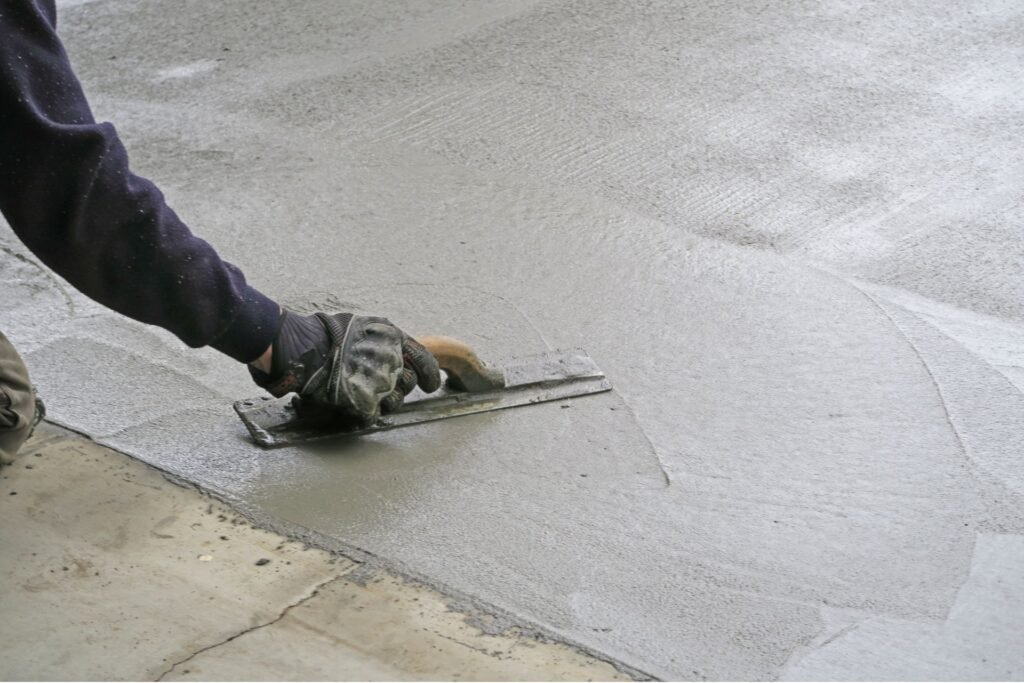
Factors Influencing Concrete Prices Per M³ In New Zealand
When estimating the cost of concrete per cubic meter (m³) in New Zealand, several key factors come into play. These variables can significantly influence the final price, whether you’re building a residential property or undertaking a large-scale commercial project. Understanding how location, concrete type, quality, and other elements affect pricing is essential for accurately budgeting any concrete-based project.
For the most up-to-date concrete price per m3 in NZ, you can refer to local suppliers such as Firth Concrete or other trusted sources to get accurate pricing.
Urban vs. Rural
One of the most significant influences on concrete pricing is location. In New Zealand, the cost of concrete can vary depending on whether you are in an urban center or a rural area.
- Urban Areas: Cities like Auckland, Wellington, and Christchurch have easier access to concrete suppliers, meaning lower transport costs. The availability of multiple suppliers in these areas can lead to competitive pricing. However, demand in urban centers may drive prices up, especially in high-growth cities like Auckland.
- Rural Areas: Transport costs tend to be much higher in rural locations, as concrete must be delivered from urban centers or specialized local plants. In regions like Northland or the far reaches of the South Island, the distance from the supplier can add significantly to the final price per m³ of concrete. Additionally, road conditions and delivery challenges in rural areas can lead to increased costs.
- Regional Differences (North Island vs. South Island): Pricing can also fluctuate between the North and South Islands due to differences in accessibility, supplier availability, and transportation logistics. The North Island, being more populated, often sees lower transportation costs, whereas the South Island may have higher costs due to its more remote locations and longer transport routes.
Concrete Type
The type of concrete required for your project is another critical factor that will affect the price. Concrete comes in various forms depending on its intended use and required properties.
- Standard Concrete: This is the most common and typically the most affordable type of concrete, often used for general residential purposes like driveways, pathways, and house foundations.
- Reinforced Concrete: This concrete is mixed with steel rebar or mesh, giving it added strength. It’s commonly used in structural applications such as commercial buildings, bridges, and other heavy-duty infrastructure. Due to the added materials and labor involved, reinforced concrete is more expensive than standard mixes.
- Specialized Concrete Mixes: High-performance concrete, decorative concrete (e.g., stamped or colored), and waterproof concrete tend to cost more. These specialized types are often used for commercial applications, high-end residential projects, or environments with unique requirements, such as exposure to harsh weather or chemicals.
Quality and Grade of Concrete
Concrete comes in different grades, each offering varying strength levels. The higher the grade, the stronger and more durable the concrete, but this also means a higher price per m³.
- Common Strength Ratings: In New Zealand, the most frequently used concrete grades are 20MPa and 25MPa. The MPa rating refers to the concrete’s compressive strength, measured in megapascals.
- 20MPa Concrete: Often used for standard residential projects such as driveways or patios, 20MPa concrete is sufficient for most everyday applications.
- 25MPa Concrete: Used for foundations and larger structures, this grade offers more durability and strength but comes at a higher cost.
Choosing the correct grade is crucial for the longevity and safety of your project. Opting for a lower grade than required can lead to structural problems in the long term, while choosing a higher grade than necessary might inflate your costs without adding value.
Additives and Extras
Many concrete projects require additives to improve the performance of the mix. These extras can significantly affect the final cost.
- Accelerants and Retarders: If you’re working on a project with specific timing requirements, you may need to add accelerants (to speed up curing time) or retarders (to slow it down). These additives are common in large commercial projects or in areas with variable weather conditions and can increase costs.
- Waterproofing Solutions: For areas exposed to moisture, such as basements or outdoor surfaces, waterproofing additives are often used to improve durability and prevent water damage. These additives can add a notable amount to the overall price of the concrete.
- Fiber Reinforcement: Adding fibers to the concrete mix for enhanced tensile strength and crack resistance can also raise costs, but it provides essential benefits in heavy-duty or high-traffic applications.
Quantity Ordered
The amount of concrete you order plays a pivotal role in determining the price per m³. Suppliers often offer discounts for larger orders, making it more economical to order in bulk.
- Volume Discounts: If you’re working on a large project and require a high volume of concrete, you are likely to benefit from volume discounts. Ordering a large quantity in one go can lower the price per m³, as it reduces delivery and production costs for the supplier.
- Small vs. Large Orders: On the other hand, if you’re ordering small amounts of concrete, such as for minor home renovations, expect higher prices. Smaller orders not only lack the volume discounts but may also incur extra fees, as suppliers have to cover the costs of batching, delivery, and other overheads.
Labor Costs (Optional)
While labor costs aren’t directly factored into the price per m³ of concrete, they are important to consider if you’re hiring professionals to pour and finish the concrete.
- Ready-Mix Suppliers and Contractors: If you’re ordering ready-mix concrete, the price typically includes the cost of delivery, but not the labor required to pour and finish the concrete. Hiring contractors will add to the overall project cost. Professional labor charges can vary depending on the complexity of the project, the location, and the experience of the contractors.
By understanding these factors, you can better estimate the total cost of concrete for your project in New Zealand. Whether you’re in a bustling urban center or a remote rural area, considering the location, type, grade, additives, and order quantity can help you make informed decisions, ensuring you get the right mix at the right price.
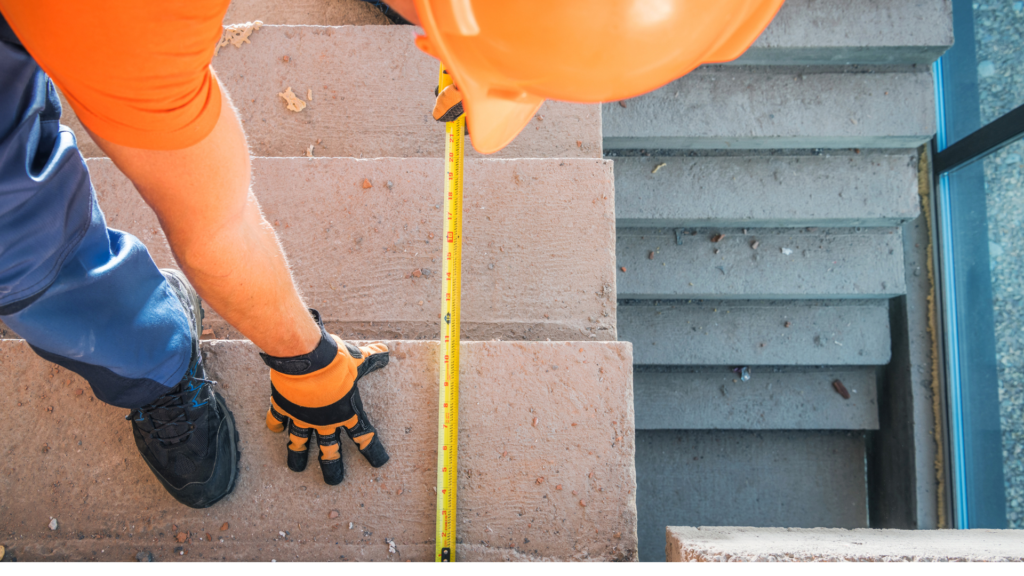
What Is The Average Concrete Price Per M3 In New Zealand?
Current Market Overview
Concrete pricing in New Zealand generally ranges from $180 to $250 per cubic meter (m3), but this can fluctuate depending on various factors, including the region, type of concrete mix, and market conditions. As of recent data, Auckland tends to have higher prices, typically hovering between $210 and $250 per m3, while areas like Christchurch or Wellington may offer more competitive pricing, closer to the $180 to $230 per m3 range. Prices are influenced not only by the mix required but also by the ease of access to local resources, labor costs, and demand within the region. For the most up-to-date concrete price per m3 in NZ, you can refer to local suppliers such as Firth Concrete or other trusted sources to get accurate pricing.
Why Prices Vary
Several factors contribute to the fluctuation of concrete prices across New Zealand. One significant factor is the cost of raw materials such as cement, sand, and aggregate, all of which are subject to global market trends. Any increase in the price of these materials directly impacts the overall cost of concrete.
Additionally, fuel prices play a crucial role, especially in transportation-heavy industries like construction. When fuel prices rise, so do delivery costs, which in turn influence the price of concrete per m3. Economic conditions, such as local construction demand or regulatory changes, can also lead to price adjustments. For instance, regions experiencing a building boom may see increased prices due to heightened demand and limited supply of both materials and skilled labor.
Comparing Prices Across New Zealand
Concrete prices can differ significantly between New Zealand’s main regions due to local economic factors and the availability of materials. In Auckland, where both residential and commercial construction projects are booming, prices are often at the upper end of the range. The city’s urban density, higher wages, and logistical challenges also push the price per cubic meter higher.
In contrast, Christchurch a region known for ongoing post-earthquake rebuilding tends to offer slightly more affordable rates. This is partly due to a well-established supply chain developed during the rebuilding efforts and relatively lower transportation costs compared to Auckland. Meanwhile, Wellington prices fall somewhere in the middle, often reflecting a balance between material availability and local demand.
Potential Hidden Costs
When considering concrete costs in New Zealand, it’s important to remember that the per m3 price typically excludes several additional charges that can add up. For example, delivery fees can vary based on the distance from the concrete plant to the construction site. Most suppliers will charge extra if your site is located further away from urban centers or in hard-to-reach areas.
Another common hidden cost is the small load surcharge. Many suppliers impose additional fees if you’re ordering less than a full truckload (typically around 5m3). This can be a significant factor for smaller projects where large quantities aren’t required.
In addition, pumping fees are another expense to keep in mind. If the site is difficult to access or if the concrete needs to be pumped over a long distance, special equipment may be required, and this service can come with substantial costs. Understanding these potential extras ensures a more accurate estimation of the total cost of your concrete project.
While concrete prices in New Zealand generally range between $180 and $250 per m3, several factors, including region, material costs, and hidden fees, can influence the final price you pay. Being aware of these variables will help you budget more effectively and avoid surprises.

How To Get The Best Price For Concrete In New Zealand
When it comes to purchasing concrete for your next project in New Zealand, securing the best price can make a significant difference to your budget. Whether you’re working on a small residential job or a large commercial project, taking strategic steps can help you find the most cost-effective option. Here’s how you can do it.
Get Multiple Quotes
One of the easiest ways to ensure you’re getting the best deal on concrete is to get multiple quotes from various suppliers. Prices can vary considerably depending on location, company size, and market demand. By gathering several quotes, you have a better idea of the going rates and can make an informed decision.
Tips for comparing quotes
- Look beyond the price: When comparing quotes, don’t just focus on the price per cubic meter. Check if the quote includes hidden costs such as delivery fees, which can significantly increase the overall cost.
- Assess the quality: Some suppliers might offer cheaper rates, but at the expense of lower-quality concrete. Ensure you’re getting a product that meets the strength and durability requirements of your project.
- Quality guarantees: Check if the supplier offers any warranties or guarantees on the quality of the concrete. A lower price might be appealing, but if the product fails, it could lead to costly repairs down the line.
Consider Ordering in Bulk
If your project requires a large amount of concrete, or if you can team up with neighbors or nearby construction projects, ordering in bulk can help you access volume discounts. Suppliers are often willing to offer lower rates for larger orders as it reduces their operational costs.
Tips for ordering in bulk
- Plan ahead: If you know you’ll need a significant quantity of concrete for your project, plan to order in one go. Splitting your order into smaller batches can lead to higher prices and repeated delivery fees.
- Coordinate with others: If your project is smaller, consider pooling orders with neighbors or other local building sites. Suppliers are more likely to provide bulk discounts if the total volume of concrete ordered is substantial.
Timing Your Purchase
Like many industries, the concrete market experiences fluctuations in demand throughout the year. By timing your purchase strategically, you can potentially save money.
Tips for timing your purchase
- Buy during off-peak seasons: Concrete suppliers may offer lower prices during off-peak times, such as winter, when construction activity slows down. Take advantage of these slower periods to get a better deal.
- Watch for promotions: Keep an eye out for sales, discounts, or special offers from suppliers. This could include end-of-year deals, seasonal promotions, or discounts for first-time buyers.
Look for Local Suppliers
Choosing a local supplier can often result in significant cost savings. Not only can local companies offer competitive pricing, but they also tend to have lower delivery costs compared to suppliers located far from your site.
Benefits of local suppliers
- Lower delivery costs: The closer the supplier is to your site, the less you’ll pay for transportation. Delivery fees can add up quickly, especially if you’re ordering large quantities of concrete.
- Quicker service: Local suppliers are more likely to provide faster delivery, ensuring that your project stays on track. This can be especially beneficial in cases where time is a critical factor.
- Support local businesses: By choosing local suppliers, you’re also contributing to the local economy, which can foster stronger relationships and potential loyalty discounts in the future.
By following these tips, you can make sure you’re getting the best possible price on concrete for your project in New Zealand. Always take the time to compare quotes, consider ordering in bulk, and work with local suppliers to maximize your savings. Keep an eye on timing and promotions, and you’ll be well on your way to securing the best deal.

DIY Vs. Hiring A Contractor: What’s More Cost-Effective
When it comes to deciding between a DIY project or hiring a contractor for your concrete work, it’s essential to weigh the pros and cons of each option carefully. The choice ultimately depends on the scale and complexity of the project, your budget, and your level of experience. Let’s break it down in detail.
DIY Concrete Projects
Taking the DIY route for concrete projects can be a rewarding experience, both in terms of cost savings and personal satisfaction. However, this option is only feasible under specific circumstances, primarily if the project is small and manageable. For example, you might consider handling tasks like building a patio, a garden path, or even a small slab for a shed. These types of projects typically require minimal tools and can be completed over a weekend.
That said, it’s crucial to remember that working with concrete isn’t as easy as it might seem. To achieve professional-level results, you’ll need the right tools, such as mixers, forms, screeds, and finishing trowels. You should also have some experience or, at the very least, be willing to spend time learning the process. Mistakes in mixing or pouring can lead to cracks, uneven surfaces, or even structural issues, which can end up costing you more to fix than if you’d hired a professional in the first place.
Hiring a Contractor
For larger or more complex projects, hiring a professional contractor is usually the best course of action. Projects like pouring a foundation, building a driveway, or installing a large concrete slab require precision, expertise, and specialized equipment. Contractors come with years of experience, ensuring that the work is done efficiently and correctly the first time. Plus, they’ll know how to handle specific challenges, like dealing with soil conditions, proper drainage, or adhering to local building codes.
When you hire a contractor, labor costs are an important factor to consider. While this will increase your overall project budget, the benefit is peace of mind knowing that the job will be done right. Contractors often have access to better materials and can get the work done faster, saving you time and reducing the risk of costly mistakes.
Cost Comparison
Let’s break down the cost differences between a DIY concrete project and hiring a contractor.
- DIY Costs: If you’re tackling a small project on your own, your main expenses will include materials and tools. For example, concrete typically costs between $3 to $6 per square foot, depending on your location and the type of concrete you choose. You’ll also need to rent or purchase tools, which can add $100 to $200 to your total budget. While these costs may seem low, you’ll also need to account for your time and any potential mistakes. If you don’t have the skills to achieve professional results, repairs or redoing the job can inflate your costs quickly.
- Contractor Costs: When you hire a contractor, you’re paying for both labor and materials. Labor costs can vary, but generally, contractors charge $8 to $15 per square foot for concrete work. While this is significantly more expensive than doing it yourself, the higher cost often comes with better quality and durability. Contractors also typically offer warranties for their work, so if anything goes wrong, repairs may be covered.
Weighing the Risks
While DIY projects offer the potential for savings, they also come with significant risks. If you make a mistake, you may end up spending more money to correct it. On the other hand, hiring a professional ensures that the job is done right, but it comes with a higher price tag upfront. The key is to assess the scope of your project, your experience level, and your budget before making a decision.
For small, straightforward concrete projects, going the DIY route can save money and offer a sense of accomplishment. However, for larger, more complex jobs, hiring a contractor is typically the most cost-effective option in the long run due to the expertise and efficiency they bring to the table.
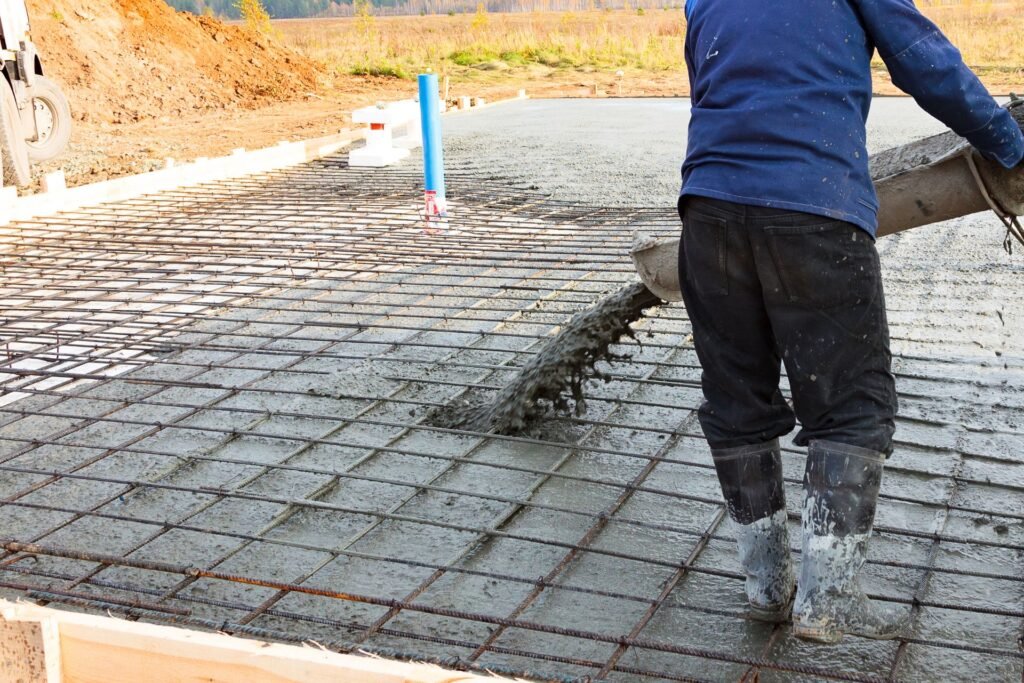
Tips For Reducing Concrete Costs In Your Project
Concrete can be one of the more expensive components of a construction project, but with some thoughtful planning and strategic decisions, you can significantly cut down on your expenses. Here are some practical tips to help reduce concrete costs without compromising on quality.
Plan Your Project Carefully
One of the simplest yet most effective ways to reduce concrete costs is to plan your project meticulously. Accurate calculations of the amount of concrete needed can save you from ordering too much, which leads to waste, or too little, which results in costly delays. For best results, ensure that your designs and blueprints are precise, taking into account all aspects of your structure that will require concrete. This way, you can place orders more efficiently and minimize unnecessary spending. Investing time upfront to get your measurements right will help prevent errors that lead to overspending on materials.
Reuse and Recycle
Being environmentally conscious can also benefit your budget. One eco-friendly strategy is to use recycled concrete from demolition projects or excess concrete from other jobs, which can often be obtained at a lower price. Recycled concrete not only helps cut material costs, but it also reduces disposal fees and the environmental impact of producing new concrete. Similarly, sourcing second-hand materials, such as used forms or equipment, can offer additional savings. These sustainable practices allow you to stretch your budget while contributing to greener building practices.
Consider Alternative Materials
In certain situations, using alternatives to traditional poured concrete can be more economical. Precast concrete panels or concrete blocks, for example, might be a better fit for your project’s needs and budget. Precast concrete panels are often quicker to install and require less labor than casting concrete on-site, which can lead to lower overall costs. Additionally, other materials such as insulated concrete forms (ICFs) or lightweight concrete might be more suitable for specific applications, offering potential savings without sacrificing quality or performance.
Avoid Over-Specification
While it’s essential to ensure the concrete used is appropriate for the job, over-specification can drive up costs unnecessarily. For example, choosing a higher grade of concrete than needed for a specific application won’t necessarily improve the durability or functionality of the structure but will increase your material costs. It’s important to consult with your engineers and contractors to determine the right balance between performance and cost, selecting only the level of concrete that is required for safety and efficiency. By avoiding over-engineering, you can keep your project within budget without compromising on safety or structural integrity.
Reducing concrete costs is all about smart planning and making informed decisions. From accurate volume calculations to considering alternative materials, each choice you make can impact your overall budget. Staying mindful of waste, sourcing recycled materials, and avoiding unnecessary upgrades are simple yet effective ways to keep your concrete expenses in check while still achieving the quality and durability your project requires.

FAQs: About Concrete Price Per M³ NZ
How much does concrete cost per cubic meter (m3) in New Zealand?
The price of concrete per m3 in New Zealand typically ranges between $180 and $250, depending on factors such as location, concrete type, and delivery fees. Urban areas like Auckland may have slightly higher prices due to demand, while rural areas might have additional transportation costs. It’s essential to get quotes from multiple suppliers to find the most accurate and competitive pricing.
What factors affect the price of concrete per m3?
Several factors influence the price of concrete, including location, as prices can vary between urban and rural areas due to delivery distances. The type of concrete also plays a role, with standard concrete being less expensive than specialized mixes like high-strength, decorative, or fiber-reinforced concrete. Additives such as accelerators, retarders, or waterproofing agents can increase the cost as well. Quantity is another key factor; ordering larger volumes may qualify for discounts, while smaller loads might incur additional fees. Lastly, delivery fees can vary significantly depending on your distance from the supplier.
What is the minimum order for concrete delivery?
Most suppliers in New Zealand have a minimum order requirement for concrete delivery, typically ranging from 0.4 to 1 cubic meter. If your project requires less than the minimum, you may have to pay a small load surcharge to cover delivery costs.
How do I calculate how much concrete I need for my project?
To calculate the volume of concrete required, use this simple formula:
Length (m) x Width (m) x Depth (m) = Volume (m3)
For example, if you are laying a concrete slab for a driveway measuring 10 meters long, 5 meters wide, and 0.1 meters deep, you would need 5 cubic meters of concrete. Many suppliers also offer online concrete calculators to help you estimate your needs accurately.
Can I pour concrete myself, or should I hire a professional?
For small projects like patios, garden paths, or small slabs, DIY concrete pouring is feasible if you have the right tools and knowledge. However, for larger or more complex projects like driveways or foundations, hiring a professional is recommended. Professionals can ensure that the concrete is mixed, poured, and cured correctly, which is crucial for long-term durability.
What is the difference between standard concrete and reinforced concrete?
Standard concrete is a mix of cement, water, sand, and aggregates, suitable for basic construction projects like paths and slabs. Reinforced concrete includes steel bars (rebar) or mesh to provide additional strength and support, making it ideal for load-bearing structures like foundations, walls, and large driveways. Reinforced concrete is more expensive than standard concrete due to the added materials and labor.
Is there a difference in price between concrete grades?
Yes, concrete comes in various grades, typically measured in megapascals (MPa), which indicate the strength of the concrete. Common grades in New Zealand include 20 MPa and 25 MPa. Higher grades like 30 MPa or 40 MPa are stronger and more durable but come at a higher cost. The grade of concrete you need depends on the specific requirements of your project.
Are there hidden costs when ordering concrete?
When ordering concrete, there can be additional costs such as delivery fees, which vary depending on your location. Small load surcharges may apply if you order less than the minimum required volume, and pumping fees can be incurred if the concrete needs to be pumped into hard-to-reach areas. It’s important to clarify all potential fees with your supplier before placing an order to avoid surprises.
What is the best time of year to buy concrete in NZ?
Concrete can be purchased and poured year-round in New Zealand, but it’s best to avoid extremes in weather. Winter months can pose challenges due to cold temperatures, which may slow down the curing process. On the other hand, extremely hot weather can cause the concrete to dry too quickly, leading to cracks. The shoulder seasons (spring and autumn) tend to provide ideal conditions for concrete work.
How can I reduce concrete costs for my project?
To reduce concrete costs, it’s essential to accurately estimate the amount needed to avoid over-ordering or under-ordering. Shopping around and getting quotes from multiple suppliers can help find the best deal, while ordering in bulk allows you to take advantage of volume discounts. Where appropriate, you can also reuse materials like recycled concrete. Timing your purchase during off-peak months may yield promotions or discounts, and planning your project carefully perhaps coordinating with neighbors or other local projects can further reduce costs, particularly with delivery fees.
Conclusion
Understanding the various factors that influence concrete pricing in New Zealand is essential for making informed decisions. Key takeaways include recognizing how location, the type of concrete, delivery distance, and the volume needed can all significantly impact overall costs. Additionally, considering extras like pumping or additives is crucial when budgeting. To get the best value, it’s important to plan ahead, conduct thorough research, and compare quotes from different suppliers. By doing so, you’ll not only avoid unexpected expenses but also ensure you’re getting the highest quality materials for your project. Whether you’re considering a DIY approach or hiring professional help, careful planning will save both time and money. Therefore, take the time to evaluate the scale of your project and assess your skills before deciding. Reach out to local suppliers, gather multiple quotes, and weigh the benefits of professional installation versus doing it yourself. Making the right choices now will lead to a successful and cost-efficient outcome.
About the Author:
Mike Veail is a recognized digital marketing expert with over 6 years of experience in helping tradespeople and small businesses thrive online. A former quantity surveyor, Mike combines deep industry knowledge with hands-on expertise in SEO and Google Ads. His marketing strategies are tailored to the specific needs of the trades sector, helping businesses increase visibility and generate more leads through proven, ethical methods.
Mike has successfully partnered with numerous companies, establishing a track record of delivering measurable results. His work has been featured across various platforms that showcase his expertise in lead generation and online marketing for the trades sector.
Learn more about Mike's experience and services at https://theleadguy.online or follow him on social media:



